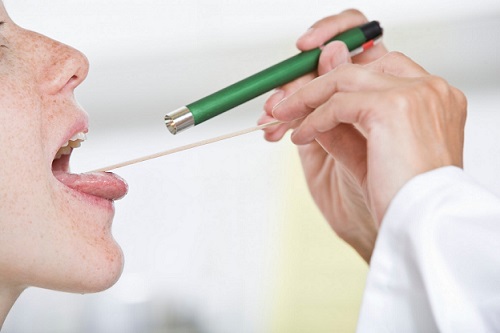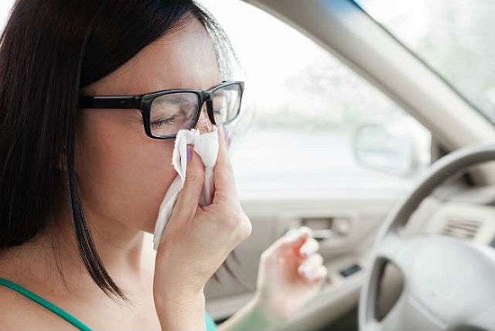Strep throat is a highly-contagious bacterial infection that affects your throat and tonsils. If you have been diagnosed with strep throat, you may be asking this question: How long is strep throat contagious?
Strep throat is contagious for about 2-3 weeks in individuals that do not take antibiotics. However, individuals that take antibiotics for strep throat usually are no longer contagious about 24 hours after initiating antibiotic therapy. The bacteria that cause strep throat can be transmitted person-to-person by direct contact, especially from mucus droplets from the mouth and indirect contact, such as kissing and sharing utensils or drinking cups.
Strep Throat Basics

Strep throat is caused by the bacteria streptococcus pyogenes. It is considered GAS, which stands for Group A Streptococcus infection, and you can be contagious for a 2- to 5-day period before you even start to experience symptoms. During this time, you will probably unwittingly share your germs with someone else. Once you start to have symptoms and suspect you may have strep throat, you are contagious and should start taking precautions not to infect those around you. If you’re not sure whether you have strep, you may wish to read:
- Strep Throat Symptoms
- Is Your Sore Throat Strep?
Do I Need Antibiotics?

Strep throat is most common in children between 5 to 15 years old, and only makes up 5-10% of sore throat cases in adults. This is why your doctor will not just start giving you antibiotics right away. It is important to help prevent development of “super bugs”, or antibiotic resistant bacteria, that your doctor is sure you need antibiotics.
To test for strep throat, your doctor will need to perform a strep test.
If your strep test is negative and your doctor suspects a viral infection, you will not need antibiotics. However if you test positive for strep throat, you will be prescribed Penicillin V, Amoxicillin or another antibiotic that is known to be effective.
How Long Will I Be Contagious?

If you are diagnosed with strep, you will stop being contagious approximately 24 hours after starting an antibiotic. Antibiotics should help alleviate your symptoms within one or two days, although in some people the symptoms may last up to a week. (Without treatment, strep throat generally resolves on its own in about a week.) If you don’t have any reduction in fever or other symptoms within 48 hours of starting antibiotics, contact your physician.
Studies have shown that if you are on an antibiotic and you do not have a fever the night before returning to school or work, you will not be contagious. Identification of fever the night before is important in identifying whether or not you will likely spread strep throat to others around you.
Other Ways to Prevent the Spreading of Strep Throat?

You may not always be able to avoid others will having strep throat. You can count on being contagious if you still have a fever or have not been on antibiotics for more than 24 hours, If you think you are contagious and will be around others, you can try these tips to reduce your risk of getting them sick as well.
- Strict and frequent hand washing (wash for about the length of the alphabet song) with soap/water or a use a hand sanitizer and let air dry
- Cover your mouth when you cough or sneeze. You can use a Kleenex, napkin, or sleeve. Do not cover your mouth with your hands. If you do cover your mouth with your hands, wash them immediately.
- Do not share eating utensils or drinking glasses with anyone.
Avoiding people all together is best, however following the above tips can drastically reduce the risk of sharing strep throat with others. Strep throat is passed through droplets that are sneezed, coughed or shared in other ways. Touching contaminated surfaces and then touching your mouth, kissing, or sharing silverware or drinking glasses will increase the risk of spreading strep throat to someone else. Children in the same household have a 50 percent chance of sharing strep throat with their siblings.
Potential Complications of Not Treating Strep Throat
Even though your symptoms may have ceased with antibiotics, you should always take your full course of antibiotics as prescribed, primarily to avoid rare, serious complications, like rheumatic heart disease. Treatment with antibiotics should be started within 9 days of symptoms to reduce your risk for complications of strep throat.